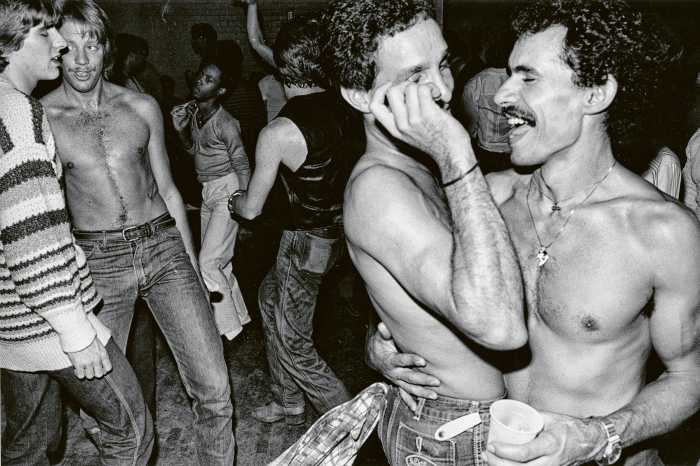New bio details sexual liaison with white Boston blueblood
A meticulous new biography of Malcolm X by one of America’s most respected African-American scholars is creating waves based on a variety of its revelations.
Details about how the New York City Police Department and the FBI had advance knowledge of the 1965 assassination of the 39-year-old Malcolm but allowed it to happen and then deliberately bungled the investigation provide a stark reminder of American officialdom’s hostility toward assertive African-American demands for change in that era.
The author’s discussion of the young Malcolm’s life as a sex worker, meanwhile, provokes a rethinking of male sexual orientation and expression in the communities from which the charismatic leader emerged.
“Malcolm X: A Life of Reinvention,” was published on April 4 by Viking, but tragically its author, Manning Marable, after suffering a long illness, died three days shy of seeing the book in print. The director of Columbia University’s Center for Contemporary Black History, the prolific Marable (author of 15 books on African-American life, including a superb biography of W.E.B. DuBois) spent a decade preparing this new biography of Malcolm.
It is an engrossing work, one that is being justly hailed as the definitive biography of one of the most influential leaders in African-American history. The book gives new insights into Malcolm’s infinite complexities, contradictions, and genius for self-reinvention, but also conveys with cogent realism the texture of life for African-Americans from the Great Depression until his assassination.
There is little doubt that as a young man Malcolm was actively bisexual for at least a decade — Marable writes he was simultaneously a “ladies’ man” and a “homosexual lover.” And Marable is not the first to expound on the firebrand’s same-sex past.
In 1992, Bruce Perry’s biography, “Malcolm: The Life of a Man Who Changed Black America” (Station Hill Press), based on 400 interviews with Malcolm’s friends and family members, documented quite a few of his same-sex experiences. A schoolmate, Bob Bebee, recalls the day he and Malcolm stumbled on a local lad jerking off. Malcolm, Bebee recalled, ordered the youth to masturbate him and later boasted he had given him oral sex as well.
Spike Lee’s 1992 biopic, “Malcolm X,” which won an Academy Award nomination for Denzel Washington in the title role, hinted at the fact that, from the age of 20 on, Malcolm had sex with men for money. And in Perry’s book, two of Malcolm’s friends remembered bumping into him at a New York City YMCA, where Malcolm bragged he earned money servicing “queers.”
Perry also recounted that, while living in Flint, Michigan, young Malcolm’s roommate noticed that instead of sleeping in the room they were sharing, Malcolm snuck down the hall to spend the night with a gay transvestite named Willie Mae. Perry suggested that Malcolm’s queer encounters may not have been entirely financially motivated, painting a picture of his masculine insecurities and ambivalence toward women, which some would say fit the archetype of a repressed gay man and point to latent homosexuality.
Marable, on the other hand, presents Malcolm as sexually precocious with women, particularly older women, from his teen years on, and boastful as a youth about his female conquests, particularly transgressive sexual encounters with white women, including one that went on for several years.
But Marable also details how Malcolm had a sustained sexual relationship with a man. Paul Lennon was the well-to-do son of a successful merchant and newspaper publisher active in Democratic politics and a lifelong bachelor who employed male “secretaries” in his Boston home. Some time in 1944, Malcolm began working for the 50ish Lennon as a “butler and occasional house worker” in his plush home on an affluent stretch of Arlington Street in the Back Bay.
“Soon something deeper than an employer-employee relationship developed,” Marable writes. “(After Malcolm’s later arrest, in 1946, he would give the police Lennon’s name and address as a previous employer, convinced that Lennon would use his financial resources and other contacts to help him during his time in prison.)”
“The Autobiography of Malcolm X,” written by Alex Haley based on 50 interviews with Malcolm and published the year of the assassination, contains a passage which Marable, who dismisses the work as “fictive,” asserts “describes sexual contacts with Lennon, except that Malcolm falsely attributed them to a character named Rudy.”
“[Rudy] had a side-deal going, a hustle that took me right back to the old steering days in Harlem [when Malcolm “steered” men to prostitutes],” Haley quotes Malcolm recalling in “The Autobiography.” “Once a week, Rudy went to the home of this old, rich Boston blueblood, pillar-of-society aristocrat. He paid Rudy to undress them both, then pick up the old man like a baby, lay him on his bed, then stand over him and sprinkle him all over with talcum powder. Rudy said the old man would actually reach his climax over that.”
About this passage, Marable writes, “Based on circumstantial but strong evidence, Malcolm was probably describing his own homosexual encounters with Paul Lennon.”
As keepers of the flame, Malcolm’s remaining family members dispute Marable’s contention. After NPR’s Michel Martin asked Malcolm X’s daughter, Ilyasah Shabazz, about the homosexual encounters referred to in Marable’s book, she walked off the show, complaining the interview focused on those encounters rather than on the significant events of her late father’s life.
Before walking off, however, even as she decried Marable’s findings, she emphasized that Malcolm was not anti-gay.
“I think the things that I take issue with are the fact that he said my father engaged in a bisexual relationship, a homo — you know, he had a gay lover who was an elder white businessman, I think, in his late 50s when my father was in his teens,” Shabazz said. “And, you know, my father was an open book. And we actually have four of the missing chapters from the autobiography. And, you know, he is very clear in his activities, which nothing included being gay. And certainly he didn’t have anything against gay — he was for human rights, human justice, you know. So if he had a gay encounter, he likely would’ve talked about it. And what he did talk about was someone else’s encounter.”
But in a 2005 column on Malcolm’s birthday entitled “Malcolm X — Gay Black Hero?” for the Guardian, a UK daily, iconic British gay activist Peter Tatchell, relying on the reporting in the Perry biography, made a telling point: “In [Malcolm’s] schooldays, he was apparently a passive participant. Others masturbated or fellated him. Later, while working as a male prostitute, he took a more hands-on role in sex, especially with Lennon. This part-time whoring may have been pecuniary.
“There is, however, plentiful research suggesting that many guys who have sex with men for payment are in denial about their homosexual inclinations. They tell themselves they are doing it for the money. This is their way of coping with same-sex desires that they are unable to accept.
“Was this Malcolm’s excuse? Surely there must have been some degree of queer desire to enable Malcolm to sustain his sexual experiences with men over a period of ten years? If this desire was within him from adolescence to early adulthood, could he have erased it completely in later life?”
Why does all this matter?
Because for too long the queerness of major black figures has been swept under the rug, in part because of the enormous influence of those black churches that preach homophobia. Many of the key literary and cultural figures of the celebrated Harlem Renaissance of the 1920s were either homosexual or bisexual, including Claude McKay, Countee Cullen, Alain Locke, Richard Bruce Nugent, and the most closeted of them, Langston Hughes. Their same-sex affinities are either present or reflected indirectly in their work, yet their queerness is not taught to young blacks learning about their cultural heritage.
Malcolm X was and remains an inspirational figure to blacks as well as to many whites, here in the US and around the world. Imagine the positive impact it would have if queer black youth yearning for role models were able to discover that this global hero shared, to some degree, their orientation. The notion that suggesting he could be attracted to his own gender is somehow a slur on Malcolm’s memory must be confronted head on. These revelations simply add new colors and dimensions to our understanding of this complex, noble man who, at the horribly premature close of his young life, had become an apostle of tolerance and human dignity.
Malcolm was murdered three years before Stonewall. Given the trajectory of his growth and transformation, had he lived to witness the birth of the modern gay liberation movement, he might well have echoed the sentiments Black Panther founder Huey Newton proclaimed in his famous August 15, 1970 speech calling for unity between the black and gay liberation struggles.
“Nihil humani a me alienum puto” or “Nothing human is alien to me” was the motto of the second century B.C. Carthaginian slave-turned-playwright Terentius (Terence). And it is through that optic that one must read Manning Marable’s groundbreaking account of Malcolm X’s life.
Essentials:
MALCOLM X:
A LIFE OF REINVENTION
By Manning Marable
Viking
$30; 594 pages
Huey Newton’s speech on homosexuality and the gay liberation movement is online at historyisaweapon.com/defcon1/newtonq.html.
































